By: Dang U. Koe, ASP Chair Emeritus
The autism community was all agog with the release this year of the new definition of autism in the Diagnostic and Statistical Manual of Mental Disorders (DSM)-5. The manual is one of the tools used by clinicians when diagnosing persons with or those suspected to have Autism Spectrum Disorder.
In the previous DSM-4, several disorders such as Autistic Disorder, Asperger’s Syndrome, and Pervasive Developmental Disorders not otherwise specified (PDD-NOS), were referred to as Pervasive Developmental Disorder. But under the new manual, all of these diagnoses now fall somewhere along the autism spectrum, and are therefore referred to as Autism Spectrum Disorder (ASD).
The three categories of autism symptoms in DSM-4 include impairments in social interaction, communication and repetitive or stereotypic behaviors. In DSM 5, there are only two categories: social communication and interaction, and restricted and repetitive behavior.
These changes are just among the five major developments in the diagnosis of autism that were approved by the American Psychiatric Association. We asked those who live with autism every day − the professionals, the parents and relatives of persons with autism (PWAs) as well as the PWAs themselves – what these changes mean to them and how it will affect their lives. Here is what they have to say.
*****
“We are grateful that the DSM-V has finally come out, which simplifies the categories for ASD and similar disorders. The categories in the past were far too numerous and confusing for both parents and the medical professionals.” — Alex Cabason, Autism Society Philippines (ASP) Marikina Chapter president, and parent of of 14-year-old PWA Vince.
“When my son was diagnosed at the age of three, I asked the developmental pediatrician about the severity of his autism. The doctor said she prefers not to specify what level he was in. In a way, her response spared me from additional stress apart from the devastating impact of hearing the diagnosis of my son. But at the same time, I also badly needed information on whether my son was low-functioning or high func-tioning as basis for my future actions. With the changes in the DSM-5, children can now be classified as Level 1, 2 or 3.
The new method of consolidating the diagnosis of Asperger’s syndrome, autism and PDDNOS into just one diagnosis would eliminate the notion that those with Asperger’s syndrome are better off than those with autism and PDD-NOS. On the other hand, the disadvantage would be if we correlate the parents’ level of hope with the level of functionality defined during assessment. The more a parent knows about the severity of autism in his or her child, the more helpless and distraught they may become. Likewise, the intensity of intervention may also be taken for granted by the parents of higher functioning children.” — Jane Gonzales, a columnist of Davao’s SunStar and mother to PWA Jan, 21
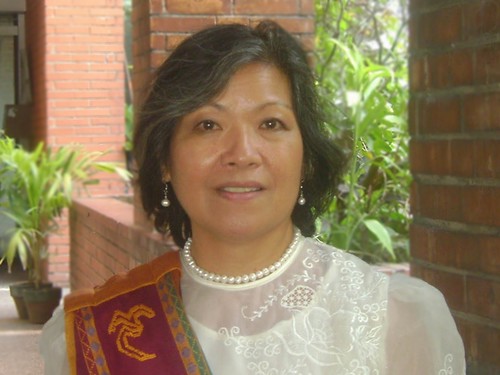
“As a SPED professional and community-based rehabilitation worker, I consider the DSM-5 as the beginning of uniformity in terminologies as far as diagnosis is concerned. Although the label is not to keep the child in the box, understanding the diagnosis is a step ahead in designing his/her IEP (Individualized Education Plan). I’m pretty sure that the learning characteristics of the child with ASD will remain unchanged, and it is the level of severity that will continue to challenge the teaching and learning process.” — Riza Cansanay from the Autism Resource Center of ASP Laguna, and mother of 28-year-old PWA Michael
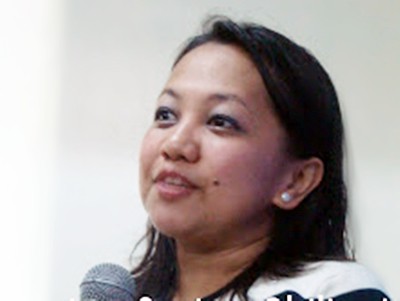
“The new categories will help novice therapists pick appropriate therapy techniques because of clear guidelines and description of diagnosis. This will also help the doctors and speech therapists speak the same language and understand each other better in terms of diagnosis. However, I am concerned with the inclusion of PDD-NOS in the autism umbrella. Many researches state that children with PDD-NOS can have typical language development with the help of therapy, thus reversing some of the delays particularly in speech, language and social communication. This might confuse parents further and complicate the issue of autism as being reversible rather than a life-long disorder as claimed by most specialists.” —Kate Reyes, a speech pathologist of Independently Speech and OT Center in San Pascual, Batangas
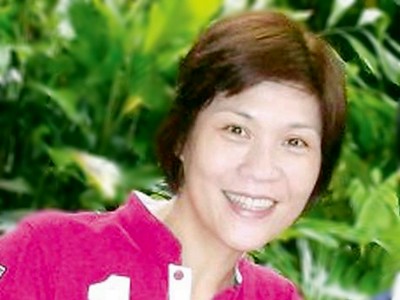
“With the lowering of the criteria for diagnosing a number of disorders, therapists should use the DSM-5 with extreme caution. It still boils down to knowing my students well enough to identify the areas where they need support and come up with a suitable program/plan to address their needs.” — Josephine de Jesus, a speech therapist from Makati City
“I cannot say certainly that the new guidelines for DSM-5 should classify other disabilities like PDD-NOS under the autism spectrum disorder. The fact that children develop uniquely does not mean that they are conclusively presumed to have autism without further probing or analysis. For instance, a child who has developmental delays but does not manifest a lot of them does not imply autism.
I still believe that children who manifest any behavior pertaining to autism should still have access to health and educational services provided by appropriate professionals or government to the maximum extent possible.” —JR Tan, autism advocate
“The deletion of the diagnosis of Asperger’s and PDD-NOS seems to be causing a stir. I’ve heard so many parents say that their child just has PDD-NOS or Asperger’s - as if to console themselves that it isn’t as bad as the classic autism that people imagine. If the label of “autism” does not deter parents from seeking the most appropriate intervention they can find/afford, then ultimately it does not make a difference. But if the label stigmatizes them to despair and inaction, then it’s another matter. Ultimately it is the parental perception or understanding of the diagnosis that will make the difference and determine the course of action and outcome.” — Cecile Sicam, school directress of Bridges Foundation and mother of 32-year-old PWA Likas
***
Dr. Alexis Reyes, one of the country’s top developmental pediatricians, will talk about “Autism Redefined: The Implications of Redefinition of ASD in DSM-5 on Diagnosis and Prevalence” at the 13th Philippine National Autism Conference. Themed “Hope for ‘A’ Nation,” the confab will tackle issues and experiences relevant to an autism community that is striving for acceptance and inclusion in Philippine mainstream society.
The event is designed to provide information on developments relevant to allied medical professionals, social servants and community workers who work with autism. Most importantly, the event was created for the growing community of parents, family members and individuals on the autism spectrum who are seeking answers, quality support and fellowship. For more details, visit
http://bit.ly/philnac2013.
This article appeared on 12 August 2013 in the print and on-line versions of Manila Bulletin's "Angels Talk" under the by-line of Dang U. Koe, ASP Chair Emeritus.

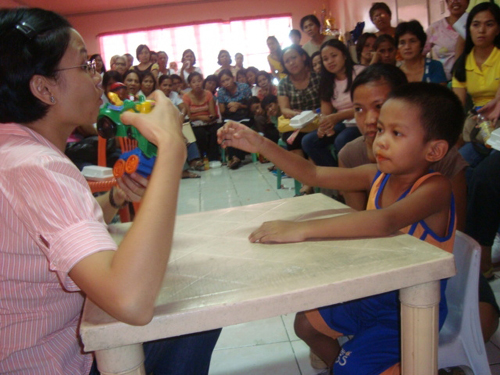
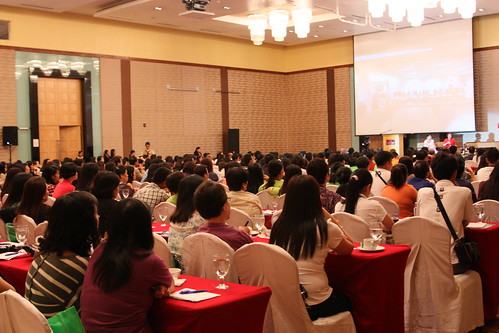



 Posted in: angels-talk
Posted in: angels-talk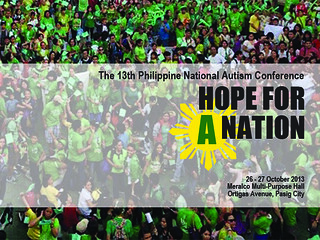
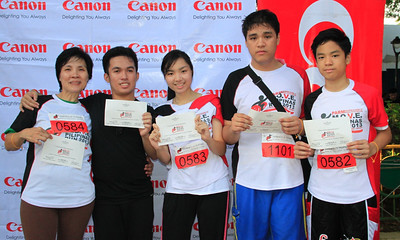



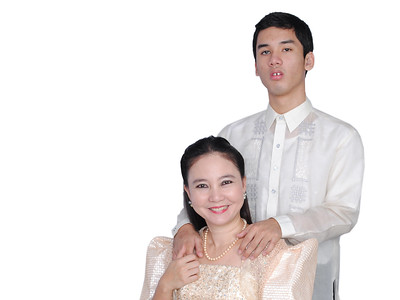
 Posted in: fsg
Posted in: fsg